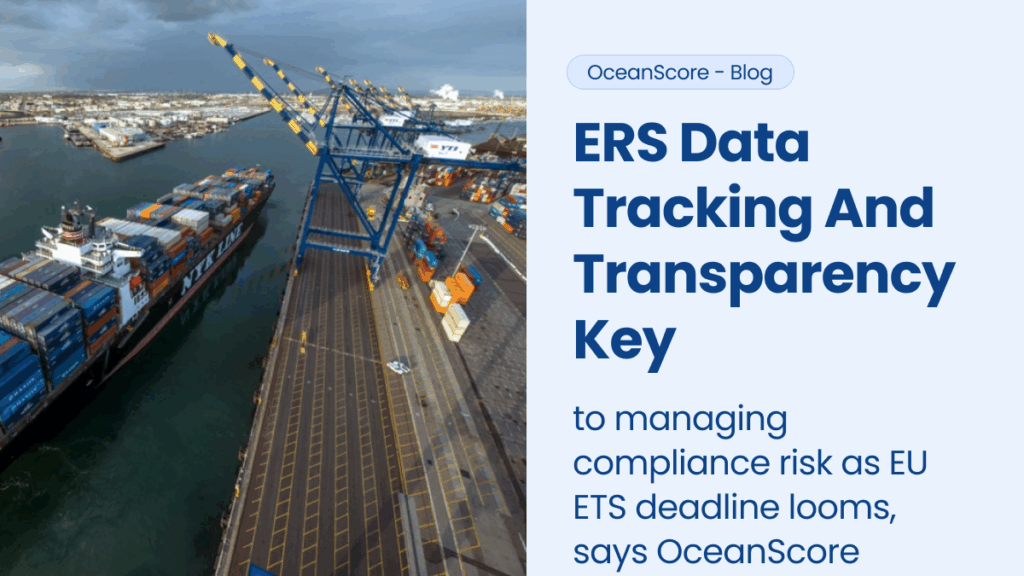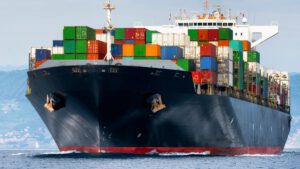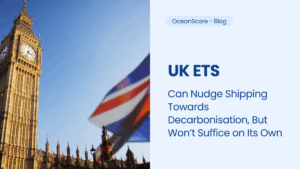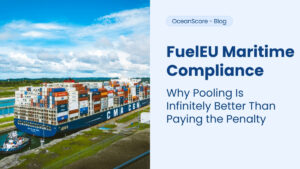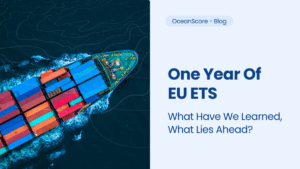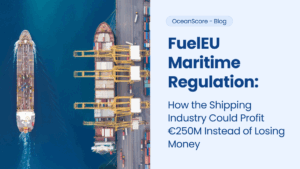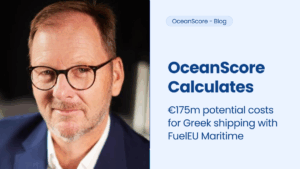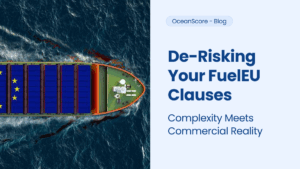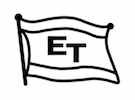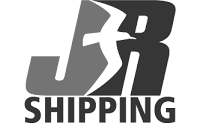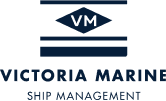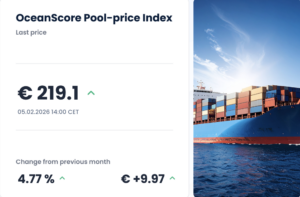The maritime industry is bracing for the first large-scale verification of carbon credits to be surrendered to authorities under the EU Emissions Trading System (EU ETS). Transparency with real-time exposure tracking using accurate data is essential to manage compliance risk and avoid costly reporting errors, according to maritime data and technology firm OceanScore.
Shipping companies must submit by the end of March aggregated 2024 emissions data for more than 12,000 vessels that will determine the volume of EU Allowances (EUAs) to be surrendered later this year, bringing into sharp focus the complexities and risks of compliance management.
Potentially, this could lead to increased costs due to possible internal reporting discrepancies and disputes among stakeholders that could result in an increased requirement for EUAs, compounded by higher EUA prices that have risen 50% over the past 12 months.
Rising costs and compliance complexity
Furthermore, compliance costs are set to triple over the next two years as emissions liabilities to be covered under the EU ETS are scaled up from 40% last year to 100% in 2026. FuelEU Maritime adds another layer of complexity with an increased financial burden and risk of errors after being rolled out on 1 January this year.
“The way to manage this risk is transparency,” says Albrecht Grell, Managing Director of OceanScore. “Real-time exposure tracking, based on reliable data, is a necessity. Continuously monitoring full-year outlooks, especially regarding a shipping company’s FuelEU exposure, will help avoid costly mistakes.”
Existing tracking portals provided by verifiers, automated applications and vessel performance management solutions may show total costs with the EU ETS and FuelEU but fall short in several key areas.
Cost visibility and accountability issues
They often fail to distinguish between commercial and MRV voyages, account for commercial and technical off-hires or integrate ensuing costs in the respective charter party clauses. Consequently, the actual financial impact of these regulations may not be properly reflected in a company’s profit-and-loss statement. This lack of clarity leaves shipowners, managers and charterers vulnerable to unexpected liabilities and disputes.
Determining costs accountability among the various stakeholders while incorporating such variables represents a further challenge, given that the responsible parties differ under both regulations.
For the EU ETS, the shipowner is designated the responsible party but can delegate this role to the DOC holder – typically the ISM manager – while charter periods must be covered by the charterer in line with the ‘polluter pays’ principle.
FuelEU, on the other hand, makes the DOC holder solely responsible, even though it affects the same vessels and charter relationships, with no regulatory enforcement of cost-sharing agreements so the ‘polluter pays’ principle must be agreed at the contractual level. Spot market operations further complicate matters as compliance costs are often embedded in freight rates.
Existing tools are inadequate to gauge exposure
Standard accounting and reporting systems lack the capability to handle these complex inter-stakeholder relationships and compliance structures, which must be correctly mapped to properly determine a company’s exposure.
This can lead to a lack of visibility around off-hires that are typically not available from a verifier’s report, inconsistent invoicing due to inaccurate operational data and valuation issues as compliance ‘payments’ are not necessarily provided in Euros or Dollars tracked in a standard accounting system. For example, EU ETS obligations can be met with EUAs while, under FuelEU, cash can be replaced by pooling opportunities accounted for in tonnes of CO2e.
Grell says the burden of data generation from companies with large numbers of vessels, different operating models and multiple charterers with different clauses will quickly overwhelm Excel-based and other traditional tracking tools, especially with expanding regulation.
‘Need for holistic ERP-style approach’
Therefore, he believes that a holistic approach to compliance management is needed through the adoption of an Enterprise Resource Planning (ERP) solution that integrates operational and financial transparency to ensure companies can track compliance values – including USD/€, EUAs and CO2e balances – consistently and accurately.
“In the initial phase, running a parallel system to existing accounting software may seem excessive,” Grell notes. “However, as the number of vessels to be monitored increases and regulations evolve, the benefits in efficiency and transparency far outweigh the costs.”
OceanScore’s ERP-based Compliance Manager automates compliance tracking, ensuring complete and accurate vessel operational data, application of EU ETS and FuelEU clauses in charter parties, and correct invoicing. It also enables companies to manage compliance balances effectively, even as EUA prices fluctuate.
The solution is rapidly gaining traction in the industry, having been adopted by leading global players like MSC, V-Ships, Tsakos, Döhle Group, Norbulk, Nordic Shipmanagement and others in the space of a year.
“Given growing regulatory pressures and accelerating digitalisation, we are seeing broader acceptance of ERP-based compliance solutions with an increasing speed of industry penetration,” Grell concludes.
Contact:
Candice Buckle, Head of Marketing, OceanScore
Email: candice.buckle@oceanscore.com
About OceanScore:
OceanScore is a maritime data analytics firm specializing in emissions regulations compliance and environmental performance benchmarking, with offices in Hamburg, Poland, Portugal, and Singapore.

